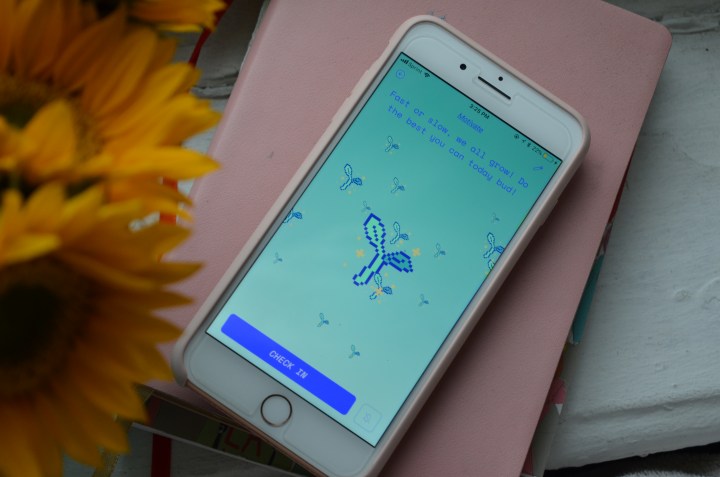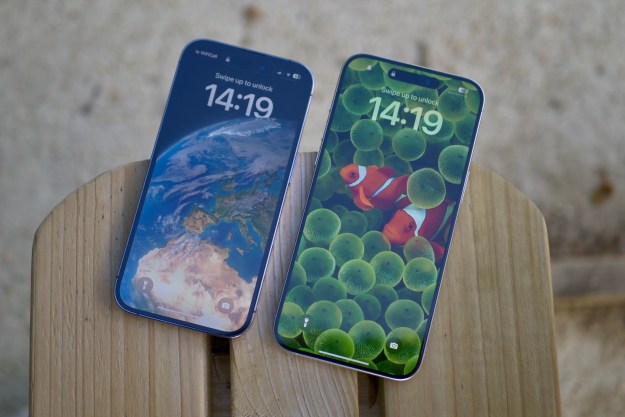
App Attack is a weekly series where we search the App Store and Google Play Store for the best apps of the week. Check out App Attack every Sunday for the latest.
More often than not, life can become busy and stressful — which means self-care gets put on the back burner. This week we have an app that will help make it easier and more enjoyable to check in with yourself each day.
Aloe Bud is a self-care companion app that gives users gentle reminders via push notifications. Whether it’s staying hydrated throughout the day or making sure you’re taking a break from work, you have the freedom to choose from a variety of different activities to set for yourself.
How Aloe Bud grew into an app
The idea for Aloe Bud came to fruition when creator and entrepreneur Amber Discko was looking for a tool that would help motivate her to keep up with self-care in a positive way. Having just finished working on the Hilary Clinton campaign in 2016, Discko realized their own personal needs were severely neglected throughout the process. But having noticed the lack of apps out there for simple self-care reminders, Discko turned to the Calendar app on their iPhone — until the notifications started to become too much.
“I had my calendar booked by the half an hour and I was trying to find a way to separate my personal from my professional because it was so important. I tried different apps and I just felt like I wasn’t sticking with it … and I felt really guilty. So, I decided that I needed to build something for myself that I knew what would work for me,” Discko told Digital Trends.

Aloe Bud first started as a free online survey check-in tool, which Discko posted to the online community they founded called Femsplain. After thousands of people (a majority of which were mobile users) took the survey, Discko started receiving requests to turn it into a mobile app.
Having had prior experience in fundraising to bring Femsplain to life, they were able to raise the funds needed to create Aloe Bud. With a background in computer science, Discko also teamed up with a development team to help build the app into what it is today.
While the concept of Aloe Bud clearly resonated with a large group of people, there were also those who were puzzled by its simplicity.
“When I did the Kickstarter campaign people were like, ‘Who needs an app to be reminded to drink water?’ and … a lot of people do … Establishing routines is not the easiest thing,” Discko said.
Using Aloe Bud on a daily basis
When you first download Aloe Bud, you’re brought to your personal dashboard where you can start to add in activity cards. After tapping on the plus sign in the left-hand corner, you can then choose your activity and begin to customize it. For example, by choosing “Move” as my activity type, I can then add in what day and time I’d like the push notification as well as what the reminder will say. You can either choose from the custom reminders already written out or you can write your own. You can also pick whether you want the notifications to repeat everyday, every work day, every weekend, or only on specific days of the week you set.
I was immediately drawn to how light and airy it felt when it comes to its look and features. In comparison to other self-care apps, Aloe Bud goes against the grain to remind users that taking care of yourself doesn’t have to feel like a chore and that it can actually be fun. Filled with bright colors and pixel art illustrations, the app gives off a nostalgic vibe to it that feels comforting.
For someone like me who tends to lose track of time when there’s deadlines or who will sometimes become so hyper-focused on what I’m doing, I can forget to complete essential tasks that are crucial to my mental health. Even though it may not seem like it in theory, taking a walk or rehydrating can do a lot for one’s mental clarity. Seeing the push notifications on my phone gently nudging me in a way that’s nurturing, makes me want to stay committed to checking in and completing the activities.
But while you can find yourself wanting to set notifications for every activity, Aloe Bud does remind you to set them sparingly, for the most effective results. That way, you can avoid “notification fatigue” and won’t feel like you’re receiving too many alerts or taking on too much.
In addition to checking in, Aloe Bud also includes a feature that allows for self-reflection. Instead of choosing to check-in with each notification, you can choose the reflection option instead. This will prompt questions like “What are you currently grateful for?” or “What have you been reading lately?” followed by a space to write up to 350 characters with your particular thoughts. That way, you’re also able to use the app as your own personal journal to help express how you’ve been feeling. While I specifically stuck to the check-in feature, I like how convenient it is to be able to jot down quick thoughts throughout the day that you otherwise wouldn’t reflect on.
Aloe Bud is free to use but there’s in-app purchases to allow you to further customize your experience. Ranging between $2 and $5, you can add bundles that give you the ability to unlock more gentle reminders or write your own personalized reminder messages.
Setting the tone for self-care
While Discko set out to keep the aesthetic of Aloe Bud cute and enjoyable, they also stressed the importance of the language. Rather than being told to do an activity such as “drink water, or “take a break” the app uses specific language that feel less overbearing.
“I spent months developing that because I wanted to make sure the words that we use weren’t triggering to anyone, or made people feel irritated by them,” they eplained. “For example, ‘fuel’ before was obviously ‘food’ or ‘eat’ and those words [were] not the tone that we wanted.”
Aloe Bud also includes plenty of customization options in order to make the app feel as tailored to the user as possible. While using the app, I’m easily able to delete specific activities, edit the day and time I want to receive the notifications, and even snooze reminders right in the check-in screen. Discko stressed this type of personalization was key — especially on days when you feel like you’re really struggling with your mental health.
“I’ve lived with depression my entire life and I completely understand not wanting to be told to do something you know you’re supposed to do. And so … I made sure to include or to promote that these [activities] can be adjusted at any time” Discko said, “I’ve seen it in people’s posts saying that, ‘While it can be annoying, I’m still doing it and that’s important for me — to say that I’m actually doing one of the three things I have set.'”
While Aloe Bud can be used as a tool for mental health, it’s not a replacement — especially for those seeking serious help. Included within the app’s settings is a tab for mental health resources, which will bring you to Aloe Bud’s site where a page lists the National Suicide Prevention Lifeline and tons of other help lines to refer to.
Discko explained that since talking about mental health is extremely important, they save the discussions for Aloe Bud’s social channels. Whether it’s on Twitter, Instagram, or Facebook, each account acts an extension to the app with positive and uplifting content, while still encouraging an open dialogue.
In the future, Discko plans on adding more features to Aloe Bud — starting with more options for reminders. Rather than having the reminder go off each day, she’d like to give users the ability to set it within intervals — like being able to set reminders to go off five times between 10 a.m. to 6 p.m. Or, also having the option to set a reminder to go off once every two weeks. They also hope to have Aloe available in other languages as well, for those using the app outside of the U.S.
Currently, Aloe Bud is only available for iOS. But Discko is raising funds via Patreon to develop an Android version, which will be available for the platform sometime next year.
Editors' Recommendations
- There’s a big problem with the iPhone’s Photos app
- 8 iPhone browser apps you should use instead of Safari
- No, the Journal app on your iPhone isn’t spying on you
- The best iPhone and Android apps for Black History Month 2024
- Google is launching a powerful new AI app for your Android phone












